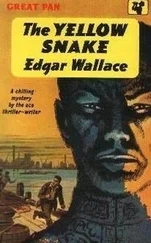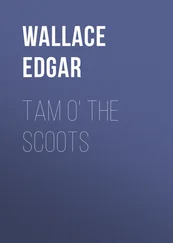Edgar Wallace - Bosambo of the River
Здесь есть возможность читать онлайн «Edgar Wallace - Bosambo of the River» — ознакомительный отрывок электронной книги совершенно бесплатно, а после прочтения отрывка купить полную версию. В некоторых случаях можно слушать аудио, скачать через торрент в формате fb2 и присутствует краткое содержание. ISBN: , Жанр: foreign_prose, на английском языке. Описание произведения, (предисловие) а так же отзывы посетителей доступны на портале библиотеки ЛибКат.
- Название:Bosambo of the River
- Автор:
- Жанр:
- Год:неизвестен
- ISBN:http://www.gutenberg.org/ebooks/49657
- Рейтинг книги:3 / 5. Голосов: 1
-
Избранное:Добавить в избранное
- Отзывы:
-
Ваша оценка:
- 60
- 1
- 2
- 3
- 4
- 5
Bosambo of the River: краткое содержание, описание и аннотация
Предлагаем к чтению аннотацию, описание, краткое содержание или предисловие (зависит от того, что написал сам автор книги «Bosambo of the River»). Если вы не нашли необходимую информацию о книге — напишите в комментариях, мы постараемся отыскать её.
Bosambo of the River — читать онлайн ознакомительный отрывок
Ниже представлен текст книги, разбитый по страницам. Система сохранения места последней прочитанной страницы, позволяет с удобством читать онлайн бесплатно книгу «Bosambo of the River», без необходимости каждый раз заново искать на чём Вы остановились. Поставьте закладку, и сможете в любой момент перейти на страницу, на которой закончили чтение.
Интервал:
Закладка:
"You're a great man," said the Houssa officer. "You'll become a colonial-made gentleman one of these days, unless you're jolly careful."
Sanders passed in silence the Houssa's gibe at the Companionship of St. Michael and St. George, and, moreover, C.M.G.'s were not likely to come his way whilst Abdul Hazim was still at large.
He was in an unpleasant frame of mind when Arachi came swiftly in a borrowed canoe, paddled by four men whom he had engaged at an Isisi village, on a promise of payment which it was very unlikely he would ever be able to fulfil.
"Master," said Arachi solemnly, "I come desiring to serve your lordship, for I am too great a man for my village, and, if no chief, behold, I have a chief's thoughts."
"And a chief's hut," said Sanders dryly, "if all they tell me is true."
Arachi winced.
"Lord," he said humbly, "all things are known to you, and your eye goes forth like a chameleon's tongue to see round the corners."
Sanders passed over the unpleasant picture Arachi suggested.
"Arachi," he said, "it happens that you have come at a moment when you can serve me, for there is in my camp a strange man from a far-away land, who knows not this country, yet desires to cross it. Now, since you know the Angola tongue, you shall take him in your canoe to the edge of the Frenchi land, and there you shall put him on his way. And for this I will pay your paddlers. And as for you, I will remember you in the day of your need."
It was not as Arachi could have wished, but it was something. The next day he departed importantly.
Before he left, Sanders gave him a word of advice.
"Go you, Arachi," he said, "by the Little Kusu River."
"Lord," said Arachi, "there is a shorter way by the creek of Still Waters. This goes to the Frenchi land, and is deep enough for our purpose."
"It is a short way and a long way," said Sanders grimly. "For there sits a certain Abdul Hazim who is a great buyer of men, and, because the Angola folk are wonderful gardeners, behold, the Arab is anxious to come by them. Go in peace."
"On my head," said Arachi, and took his leave.
It was rank bad luck that he should meet on his way two of his principal creditors. These, having some grievance in the matter of foodstuffs, advanced, desiring to do him an injury, but, on his earnest entreaties, postponed the performance of their solemn vows.
"It seems," said one of them, "that you are now Sandi's man, for though I do not believe anything you have told me, yet these paddlers do not lie."
"Nor this silent one," said Arachi, pointing to his charge proudly. "And because I alone in all the land can make palaver with him, Sandi has sent me on a mission to certain kings. These will give me presents, and on my return I will pay you what I owe, and much more for love."
They let him pass.
It may be said that Arachi, who lent "to none and believed no man," had no faith whatever in his lord's story. Who the silent Angola was, what was his mission, and why he had been chosen to guard the stranger, Arachi did not guess.
He would have found an easy way to understanding if he had believed all that Sanders had told him, but that was not Arachi's way.
On a night when the canoe was beached on an island, and the paddlers prepared the noble Arachi's food, the borrower questioned his charge.
"How does it happen, foreigner," he asked, "that my friend and neighbour, Sandi, asks me of my kindness to guide you to the French land?"
"Patron," said the Angola man, "I am a stranger, and desire to escape from slavery. Also, there is a small Angola-Balulu tribe, which are of my people and faith, who dwell by the Frenchi tribe."
"What is your faith?" asked Arachi.
"I believe in devils and ju-jus," said the Angola man simply, "especially one called Billimi, who has ten eyes and spits at snakes. Also, I hate the Arabi, that being part of my faith."
This gave Arachi food for thought, and some reason for astonishment that Sandi should have spoken the truth to him.
"What of this Abdul Arabi?" he asked. "Now I think that Sandi lied to me when he said such an one buys men, for, if this be so, why does he not raid the Isisi?"
But the Angola man shook his head.
"These are matters too high for my understanding," he said. "Yet I know that he takes the Angola because they are great gardeners, and cunning in the pruning of trees."
Again Arachi had reason for thinking profoundly.
This Abdul, as he saw, must come to the Upper River for the people of the Lesser Akasava, who were also great gardeners. He would take no Isisi, because they were notoriously lazy, and moreover, died with exasperating readiness when transplanted to a foreign soil.
He continued his journey till he came to the place where he would have turned off had he taken a short cut to the French territory.
Here he left his paddlers and his guest, and made his way up the creek of Still Waters.
Half-a-day's paddling brought him to the camp of Abdul. The slaver's silent runners on the bank had kept pace with him, and when Arachi landed he was seized by men who sprang apparently from nowhere.
"Lead me to your master, O common men," said Arachi, "for I am a chief of the Isisi, and desire a secret palaver."
"If you are Isisi, and by your thinness and your boasting I see that you are," said his captor, "my lord Abdul will make easy work of you."
Abdul Hazim was short and stout, and a lover of happiness. Therefore he kept his camp in that condition of readiness which enabled him to leave quickly at the first sight of a white helmet or a Houssa's tarboosh.
For it would have brought no happiness to Abdul had Sanders come upon him.
Now, seated on a soft-hued carpet of silk before the door of his little tent, he eyed Arachi dubiously, and listened in silence while the man spoke of himself.
"Kaffir," he said, when the borrower had finished, "how do I know that you do not lie, or that you are not one of Sandi's spies? I think I should be very clever if I cut your throat."
Arachi explained at length why Abdul Hazim should not cut his throat.
"If you say this Angola man is near by, why should I not take him without payment?" asked the slaver.
"Because," said Arachi, "this foreigner is not the only man in the country, and because I have great influence with Sandi, and am beloved by all manner of people who trust me. I may bring many other men to your lordship."
Arachi returned to the camp, towing a small canoe with which the slaver had provided him.
He woke the Angola stranger from his sleep.
"Brother," he said, "here is a canoe with food. Now I tell you to paddle one day up this creek of Still Waters and there await my coming, for there are evil men about, and I fear for your safety."
The Angolan, simple man that he was, obeyed. Half a day's journey up the creek Abdul's men were waiting.
Arachi set off for his own village that night, and in his canoe was such a store of cloth, of salt, and of brass rods as would delight any man's heart. Arachi came to his village singing a little song about himself.
In a year he had grown rich, for there were many ways of supplying the needs of an Arab slaver, and Abdul paid promptly.
Arachi worked single-handed, or, if he engaged paddlers, found them in obscure corners of the territories. He brought to Abdul many marketable properties, mostly young N'gombi women, who are fearful and easily cowed, and Sanders, scouring the country for the stout man with the fez, found him not.
"Lord Abdul," said Arachi, who met the slaver secretly one night near the Ikusi River, "Sandi and his soldiers have gone down to the Akasava for a killing palaver. Now I think we will do what you wish."
They were discussing an aspect of an adventure – the grandest adventure which Abdul had ever planned.
Читать дальшеИнтервал:
Закладка:
Похожие книги на «Bosambo of the River»
Представляем Вашему вниманию похожие книги на «Bosambo of the River» списком для выбора. Мы отобрали схожую по названию и смыслу литературу в надежде предоставить читателям больше вариантов отыскать новые, интересные, ещё непрочитанные произведения.
Обсуждение, отзывы о книге «Bosambo of the River» и просто собственные мнения читателей. Оставьте ваши комментарии, напишите, что Вы думаете о произведении, его смысле или главных героях. Укажите что конкретно понравилось, а что нет, и почему Вы так считаете.












